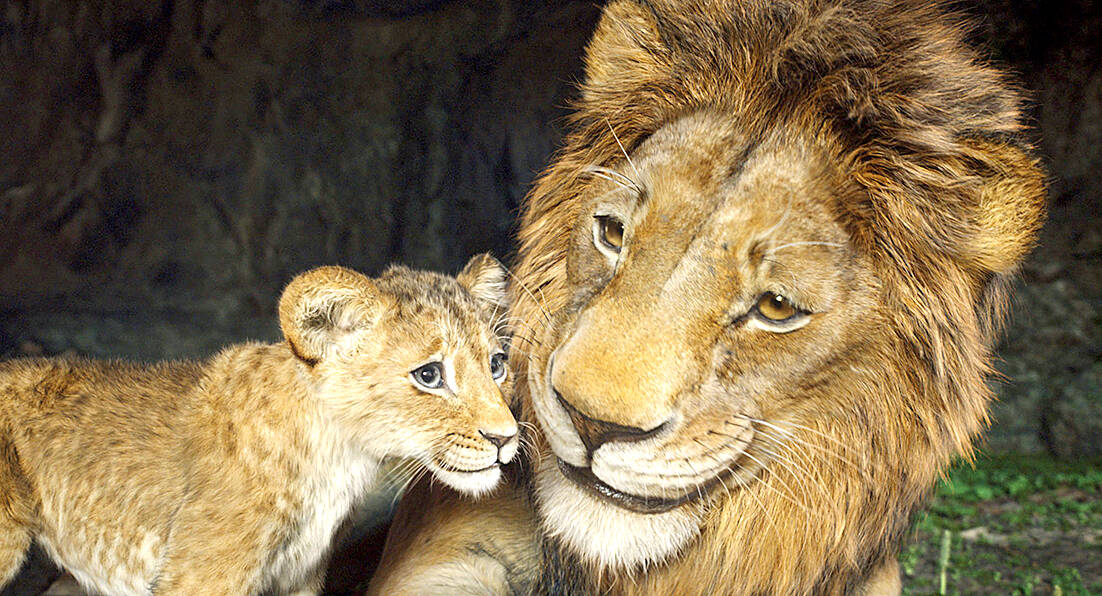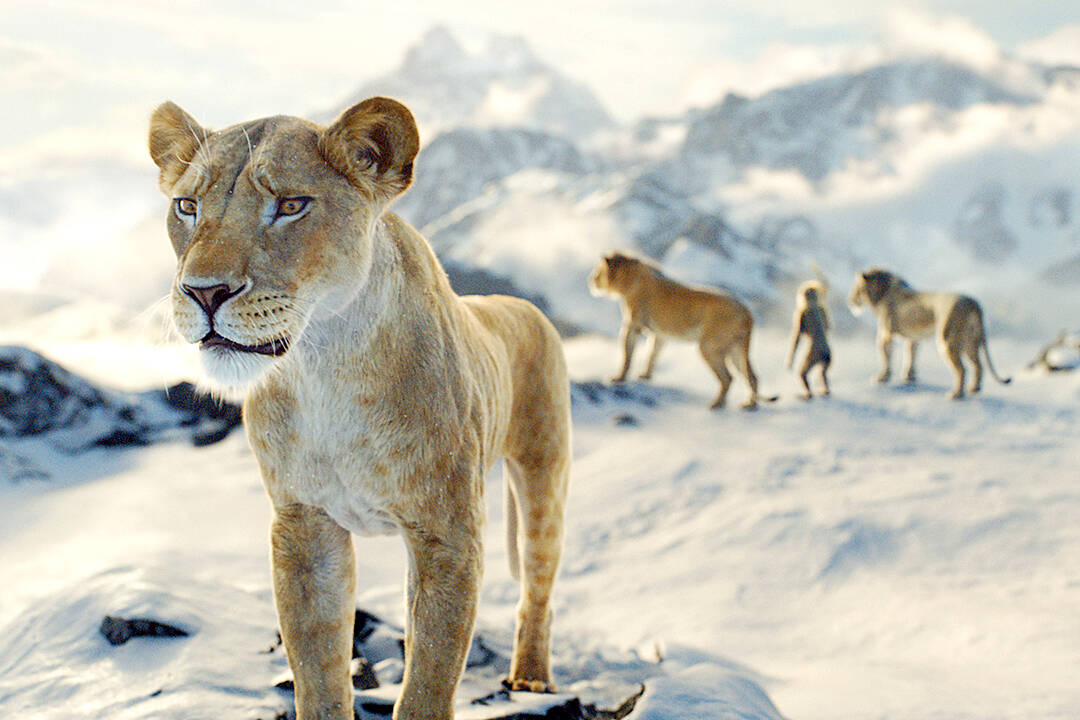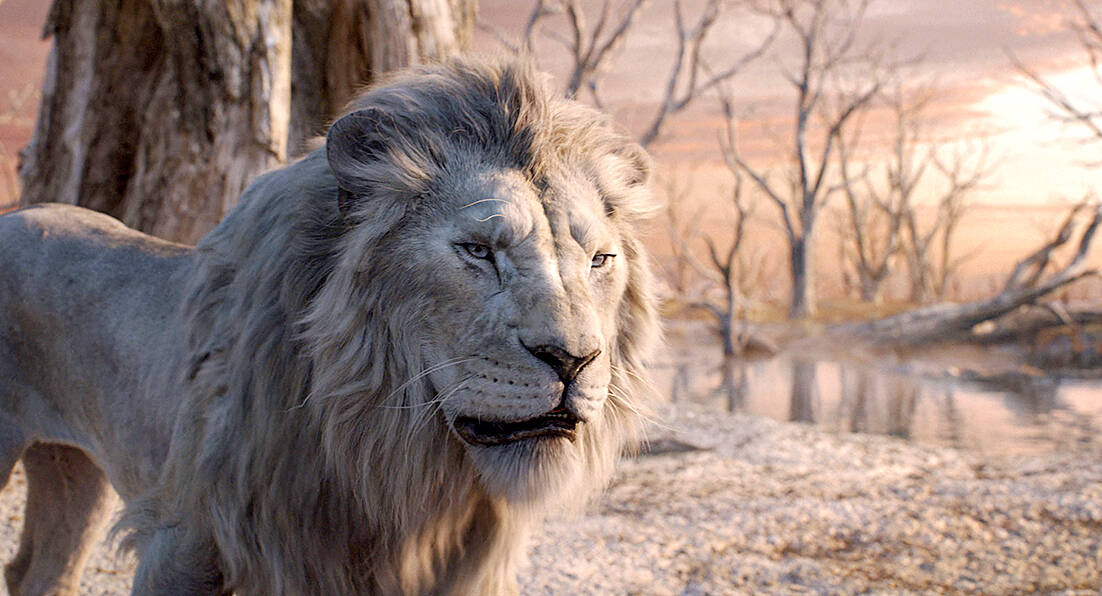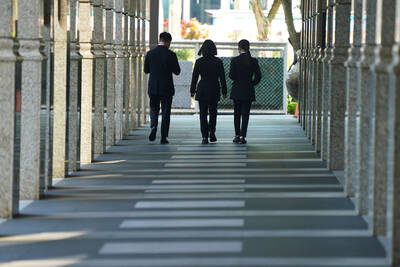Mufasa: The Lion King has one very important thing going for it: an original story.
That may seem like faint praise or at least a very, very low bar in the grand scheme of things. But in a landscape where Disney continues to remake its animated catalog in slightly different, and usually less interesting, forms whether “live action” or “photorealistic” that usually only serves to remind how good the 2D animation was, originality is not to be undervalued.
And this story isn’t simply checking off fan service boxes and overexplaining origins that never needed them: It’s actually good. A prequel to The Lion King, it’s a tale of found family, betrayal and destiny, one that begins to explain the estrangement between brothers Scar and Mufasa that we all know will end in murder, how Mufasa (Aaron Pierre) ends up as king of the pride lands and, perhaps most importantly, why only one has an English accent.

Photo: AP
In this telling, Scar was once Taka (Kelvin Harrison Jr), destined to be king of his pride, and Mufasa was a lost cub, separated from his parents in a dramatic flood. Taka saves Mufasa and brings him into his family. His mother (Thandiwe Newton) embraces the newcomer; his father (Lennie James) rejects him as nothing but a stray. Not that it matters much to the cubs; both are thrilled to have a brother. They play and protect one another and grow up together. But fissures start to appear in this foundation as Mufasa emerges as the exceptional one and Taka as the coward. And then a lioness enters the picture in Sarabi (Tiffany Boone). We’ve all seen enough movies to know what happens with that.
The screenplay comes from veteran screenwriter Jeff Nathanson, whose credits include the 2019 Lion King, this year’s lovely Young Woman and the Sea and Catch Me If You Can. He clearly took a corporate mandate (give us more Lion King) and made the absolute least cynical version of that. There are still questionable corporate-feeling choices, like straining to tie it to a current and future Lion King by having Rafiki (John Kani) tell the story to Simba (Donald Glover) and Nala’s (Beyonce) daughter Kiara (Blue Ivy Carter), Pumbaa (Seth Rogen) and Timon (Billy Eichner). These comedic breaks, and Lin-Manuel Miranda’s songs peppered throughout, aren’t additive. They really only serve to break up the momentum of the compelling main story.
But the biggest issue remains the form itself. The photo-realistic computer-generated animals may have technically improved since the 2019 Lion King, but they still aren’t movie stars like their 2D animation counterparts. Impressive though it may be intellectually, the reality of watching these animals for two hours is a somewhat numbing and dull experience despite the best efforts of director Barry Jenkins. The Oscar-winning filmmaker of Moonlight did an admirable job adding visual interest and color into the landscapes, bringing it closer to the vibrancy of animation than ever before, and making it as cinematic as possible. The original story also helps here in that he was never going to have to recreate iconic sequences in a less stimulating form. There are just inherent limitations that filmmakers have not yet figured out, including how odd it looks for these animals’ mouths to be moving and speaking English words. It’s strangest when they’re singing, mouths agape to hold the long notes in a way that no lion’s mouth should ever appear.

Photo: AP
If this is one future for filmmaking there’s still a lot of room for improvement and experimentation. That doesn’t mean it shouldn’t be embraced while the kinks are worked out. But it also doesn’t mean the movie-going public has to get excited about every rehash. Mufasa: The Lion King is better than the ones that came before it, but that doesn’t mean it’s great.

Photo: AP

Photo: AP

JUNE 30 to JULY 6 After being routed by the Japanese in the bloody battle of Baguashan (八卦山), Hsu Hsiang (徐驤) and a handful of surviving Hakka fighters sped toward Tainan. There, he would meet with Liu Yung-fu (劉永福), leader of the Black Flag Army who had assumed control of the resisting Republic of Formosa after its president and vice-president fled to China. Hsu, who had been fighting non-stop for over two months from Taoyuan to Changhua, was reportedly injured and exhausted. As the story goes, Liu advised that Hsu take shelter in China to recover and regroup, but Hsu steadfastly

Taiwan’s politics is mystifying to many foreign observers. Gosh, that is strange, considering just how logical and straightforward it all is. Let us take a step back and review. Thanks to the Chinese Nationalist Party (KMT) and the Taiwan People’s Party (TPP), starting this year people will once again have Christmas Day off work. In 2002, the Scrooges in the Democratic Progressive Party (DPP) said “bah, humbug” to that. The holiday is not actually Christmas, but rather Constitution Day, celebrating the enactment of the Constitution of the Republic of China (ROC) on December 25, 1947. The DPP and the then pan-blue dominated legislature

Focus Taiwan reported last week that government figures showed unemployment in Taiwan is at historic lows: “The local unemployment rate fell 0.02 percentage points from a month earlier to 3.30 percent in May, the lowest level for the month in 25 years.” Historical lows in joblessness occurred earlier this year as well. The context? Labor shortages. The National Development Council (NDC) expects that Taiwan will be short 400,000 workers by 2030, now just five years away. The depth of the labor crisis is masked by the hundreds of thousands of migrant workers which the economy absolutely depends on, and the

If you’ve lately been feeling that the “Jurassic Park” franchise has jumped an even more ancient creature — the shark — hold off any thoughts of extinction. Judging from the latest entry, there’s still life in this old dino series. Jurassic World Rebirth captures the awe and majesty of the overgrown lizards that’s been lacking for so many of the movies, which became just an endless cat-and-mouse in the dark between scared humans against T-Rexes or raptors. Jurassic World Rebirth lets in the daylight. Credit goes to screenwriter David Koepp, who penned the original Jurassic Park, and director Gareth Edwards, who knows